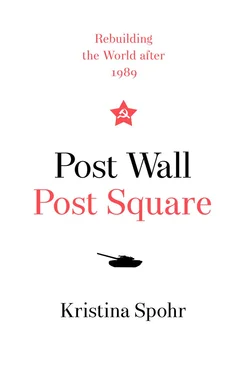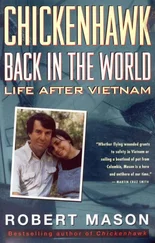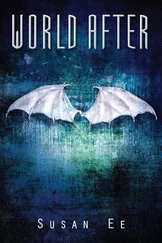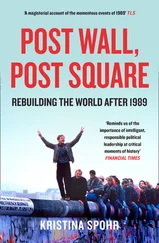Mitterrand’s friends from the Third World really irritated the Americans. After all, the Paris G7 economic summit had been prepared especially to deal with the pressing issues of debt relief and the global environment. But the US delegation emphatically did not want to get the G7 meeting conflated with an impromptu North–South gathering on the margins of the French national celebrations, especially after the debtor countries had already seized the spotlight in Paris to appeal for relief from the developing world’s $1.3 trillion debt. The White House worried about the risk that in such an ex tempore meeting between creditors and debtors, as advocated by France, the ‘South’ as a bloc would dress up their demands to the ‘North’ as ‘reparations’ for years of colonial ‘exploitation’, laced with Marxist–Leninist-inspired rhetoric. And generally, the US strongly opposed collective debtor action. In its view, debt problems should be resolved country by country and in this vein the Americans announced a $1–2 billion short-term loan to neighbouring Mexico and then picked up the case of Poland. [85]
Given the G7 summit’s central focus on debt relief, General Jaruzelski saw his opportunity and appealed to the Big Seven for a two-year, multibillion-dollar rescue programme on 13 July. Published in all major Polish party newspapers, his six-point programme included seeking $1 billion to reorganise food supplies, $2 billion in new credits, as well as a reduction and rescheduling of Poland’s debt of roughly $40 billion, plus financing for an assortment of specific projects. Significantly, the Solidarity movement endorsed Jaruzelski’s appeal; indeed, Wałęsa had just come out in support of an approved Communist Party candidate for the presidency, which made General Jaruzelski’s victory much more likely – thus helping to end the political deadlock of the post-election weeks. [86]
Still elated by his recent visits, Bush was happy to use Jaruzelski’s financial demands to put Eastern Europe on the top of the summit agenda, wresting the initiative away from Mitterrand and his supporting cast of global little leaguers. But if support for democratic change were to be the centrepiece of the meeting, this meant the summit also had to engage with a less palatable issue for the Americans: the crushed revolution in China. And so the Paris G7 came to be dominated by two burning political issues of the moment – problems that potentially threatened global order.
As soon as the summit got under way on the afternoon of Friday 14 July – in the new glass pyramid entrance of the Louvre – the leaders started by arguing over how far they should go in condemning China. Most Europeans, led by the French president, wanted to punish the PRC with exemplary sanctions, but Bush (as well as Prime Minister Thatcher, who was worried about the fate of Hong Kong [87]) urged them to be prudent. The US president wanted as little damage as possible to the Sino-American relationship that was so important to world peace. Yet he was going out on a limb in Paris, because the US Senate voted that very day by eighty-one to ten to impose more stringent US sanctions against the PRC.
Japan’s prime minister Sosuke Uno, Asia’s sole voice among the G7, also urged caution. Tokyo did not want to see Beijing isolated and by default pushed into Moscow’s arms. Moreover, given Japan’s long history of invading China, it lacked the moral high ground to punish Beijing. Japan saw itself in a unique position. If it could keep channels to China open while using its position as America’s key Pacific ally, it might be able to broker the restoration of Sino-American cooperation. Seeing real benefits in this, Bush worked hard with Uno to soften the language on China in the summit communiqué. In the end, the leaders issued a strong condemnation of the PRC’s ‘violent repression’ but they did not announce any additional sanctions and merely urged the Chinese to ‘create conditions which enable them to avoid isolation’. [88]
With the prickly topic of China out of the way, on Saturday the G7 moved quickly to achieve agreement on Poland and Hungary. Their ‘Declaration on East–West Relations’ stated: ‘We recognise that the political changes taking place in these countries will be difficult to sustain without economic progress.’ [89]In order to facilitate this progress, they agreed to impose somewhat easier conditions than on a normal IMF loan, by allowing Poland to postpone its $5 billion tranche of foreign debt repayment due in 1989. They also agreed to consider an array of economic aid options for Poland and Hungary (investments, joint ventures, professional training and an infusion of skilled managers), as well as emergency food supplies.
None of this was particularly surprising. What was much more noteworthy and eventually significant was the decision that the economic and food aid for Eastern bloc countries would be coordinated by the European Community – a striking novelty in international politics. [90]Bush got what he wanted. Enlisting support for Eastern Europe endowed his largely symbolic visit to Warsaw, Gdańsk and Budapest with real substance. But he had never intended to bear the burden alone. The G7 had readily bought his concept of ‘concerted Western action’ in support of Poland and Hungary which, Bush hoped, would lift Western engagement with Eastern Europe out of the superpower domain, spread the burden and make possible a larger, more synchronised and less competitive Western effort. The White House also believed that, couched within this broader multilateral framework, US action would look less threatening to the Soviets. Working with and through allies would become a hallmark of Bush’s diplomatic style.
It was Chancellor Kohl who proposed, with prompt agreement from the others, to ask the European Commission to head a group of donor countries to provide assistance to Poland and Hungary. This eventually became the G24: twenty-four industrialised states both from within the EC and outside it. Commission president Jacques Delors – always keen to assume a larger role for himself at the head of this supranational body – was very ready to oversee what was effectively a ‘clearing house for aid’. After all, in 1988 the EC had already established loose links with the Comecon as a trading bloc and Hungary had intimated its desire to work towards an association agreement. So, while the USA was content to take a back seat, the EC gained a position of leadership that signalled its growing political power.
The Eastern European aid package was the first time the European Community had been chosen as a follow-up agency for a G7 decision. It was a harbinger of things to come. Just three weeks earlier in Madrid on 26–7 June the EC had agreed to consummate a closer union – both political and economic – in 1992. And it was no accident that the specific blueprint for tighter economic and monetary union had been mapped out by Delors himself. [91]
Delors had been propelled into the presidency of the European Commission in 1984, following a strikingly effective three-year stint under Mitterrand as France’s finance minister which highlighted his skills as a political broker. He had successfully persuaded his notoriously obstinate boss to temper his socialist Keynesianism with a policy of austerity and fiscal consolidation. This shored up the failing franc and enabled France to remain within the European Monetary System. On the back of these achievements, moving on to Brussels as Commission president, Delors deftly steered the twelve often divergent members of the European Community towards the signing of the Single European Act in 1986, which embodied a firm commitment to move towards full economic and monetary union (EMU). Delors undoubtedly saw EMU as a way to advance the cause of European integration but he was not an avid federalist, passionate about a United States of Europe. His objections, both pragmatic and philosophical, to European federalism also help to explain his caution about highly centralised approaches to decision-making when developing the embryonic ‘Euro Area’. In 1988, at the EC Council meeting in Hanover, European leaders authorised Delors to chair a committee of central-bank governors and other experts to propose concrete stages towards EMU. Here, again, he showed his ability to forge compromises between proponents of different economic approaches, in particular building bridges between France and Germany. [92]
Читать дальше












